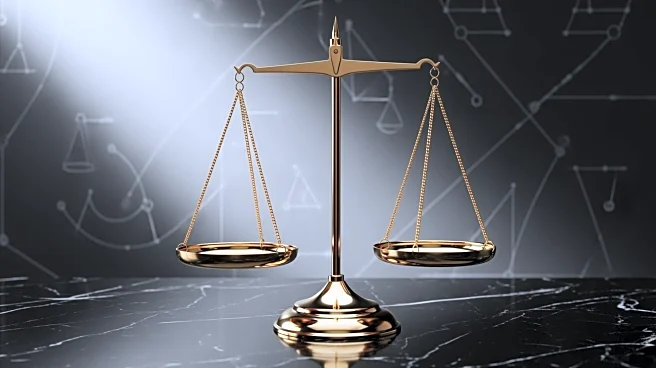What's Happening?
Amazon has agreed to a $2.5 billion settlement with the Federal Trade Commission (FTC) over allegations of deceptive practices related to its Prime subscription service. The settlement includes $1.5 billion earmarked
for refunds to eligible subscribers who were tricked into signing up for Prime or faced difficulties in canceling their memberships. The FTC accused Amazon of using 'dark patterns' to manipulate consumers into enrolling in automatically renewing Prime subscriptions. The settlement requires Amazon to provide clear options for declining Prime and simplifying the cancellation process. Customers who enrolled between June 23, 2019, and June 23, 2025, and did not use more than 10 Prime benefits in a year are eligible for payouts, with automatic payments for those who used fewer than three benefits.
Why It's Important?
This settlement marks a significant regulatory action against Amazon, highlighting the growing scrutiny of large tech companies' business practices. The FTC's intervention aims to protect consumers from manipulative subscription models, setting a precedent for transparency and fairness in digital services. The payout could impact Amazon's financials and reputation, while also prompting other companies to review their subscription practices. Consumers stand to benefit from clearer subscription terms and easier cancellation processes, potentially influencing industry standards. The case underscores the importance of consumer rights in the digital economy, with potential ripple effects across various sectors.
What's Next?
Amazon is required to notify eligible customers within 30 days of making automatic payments, with payouts expected by December 24. The company must also revise its subscription processes to comply with the settlement terms. The FTC's action may lead to increased regulatory scrutiny of other tech companies, potentially resulting in further legal challenges and settlements. Businesses may need to reassess their user interface designs to avoid similar accusations of 'dark patterns.' Consumer advocacy groups are likely to monitor compliance and push for broader reforms in subscription services.
Beyond the Headlines
The settlement raises ethical questions about corporate responsibility and consumer protection in the digital age. It highlights the need for transparency in online transactions and the role of regulatory bodies in safeguarding consumer interests. The case may influence public perception of Amazon and other tech giants, potentially affecting their market dynamics. Long-term, this could lead to a shift towards more consumer-friendly business models, emphasizing trust and accountability.








